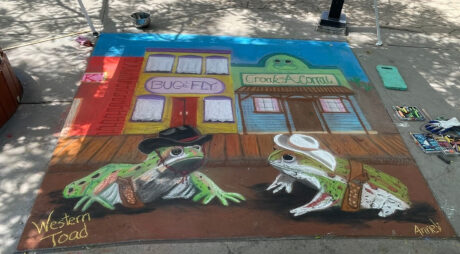Andrews: The audacity to first understand, then be understood

Photo supplied, Weber State University
Adrienne AndrewsIn the past week, I’ve had numerous people reach out to me at work and at home asking, “How can you allow people who demonize your work — or even want to fire you — to come to campus?”
This question comes in response to an event happening at Weber State University today that will explore the often-debated concepts of equity, diversity and inclusion. Hosted by the Olene S. Walker Institute of Politics & Public Service as part of the Haven J. Barlow Civic Leadership Forum, this panel discussion will focus specifically on Senate Bill 283 Study of Diversity, Equity, and Inclusion in Higher Education.
Brought by Sen. John Johnson during this year’s Utah legislative session, S.B. 283 landed with explosive impact, immediately drawing to light the differences in discourse and meaning when engaging the core concepts of equity, diversity and inclusion. You might recall a flurry of similar legislation introduced across the country, all approaching the concepts of EDI from varying vantage points and intersections.
By the end of the session, it was determined that perhaps we all ought to step back and seek first to understand and then be understood on the issues. Naturally, bodies across and within the Legislature and higher education have begun to organize conversations, establish parameters of study and, hopefully, create a path forward where we can work together. Universities like Weber State will be central in these conversations — and we welcome them.
As an undergraduate student in the class of the great Dr. William (Bill) Whisner, I learned that a college or university serves as the marketplace of ideas. This meant that we did not arrive to be filled with information like an empty vessel and then set upon the economic marketplace like drones. Rather, it was a place where we learn how to interact and engage with others, making us ready for a world of differing ideas and beliefs, mediated through lived experiences, challenging theory to action and application.
Since that time, I have always thought of higher education in this way. It’s a place to explore concepts, create and innovate, learn with and from others, all while preparing yourself for the world to come. That world could take many shapes: as a parent, homemaker, writer, engineer, accountant, teacher or any other number of trajectories — some all at the same time! What a heady space it has been for me and millions of others.
As the host institution of one of the conversations related to S.B. 283, I’m hopeful for fruitful discussions from the panel, which includes Johnson, Sen. Luz Escamilla, Rep. Angela Romero and Cari Bartholomew, host of the “Be Not Afraid” podcast. I hope it will provide one of many spaces to discuss the EDI concepts, beginning by defining the terms and finding agreed-upon meanings, or perhaps acknowledgement that we may use the same words to describe fundamentally different ideas — which happens in higher education.
That’s one of the reasons that institutions of higher education are meaningful places for such discussions and engagements: We can agree to shared rules of engagement that allow us to listen to each other, learn from each other, learn with each other. Those rules can also provide us time and space to seek clarity, develop compelling arguments and rationales, and truly consider the implications of our efforts — not only in theoretical conversation, but in actual application.
So here’s my response to those who ask how I could possibly welcome individuals whose ideas or proposals have the potential to threaten my work and livelihood: How could I not?
As a practitioner in the marketplace of ideas, I’m tasked with rooting out inequities, addressing exclusions, validating our common humanity and finding common ground for us to work from as we learn, examine and understand the world. That involves looking at things that I disagree with, maybe even find abhorrent, just as much as things that I consider neutral, moral or ethical. I have to be open to hearing from others, even if I do not agree, to better understand my own positions — and hopefully theirs as well.
As usual, I return to Stephen Covey and his fifth habit of seeking first to understand and then be understood. We must be open to learning something new. This type of conversation should enlighten all parties involved. Communication is more than words and, following this discourse, we should be able to feel something new, as well as understand another’s viewpoint. When we listen to learn, when we truly perceive the feelings behind words, we can find understanding. Everyone wants to be heard, and only then can they be open to hearing others.
I invite you to join me and many others as we have one of these conversations today from 12:30-1:30 p.m. at Weber State’s Ogden campus. We’ll meet in the Haven J. Barlow Lecture Hall, Room 101 of Lindquist Hall. You can register for the event on GivePulse.
Adrienne Andrews is the vice president of equity, diversity and inclusion at Weber State University. Twitter: AdieAndrewsCDO



